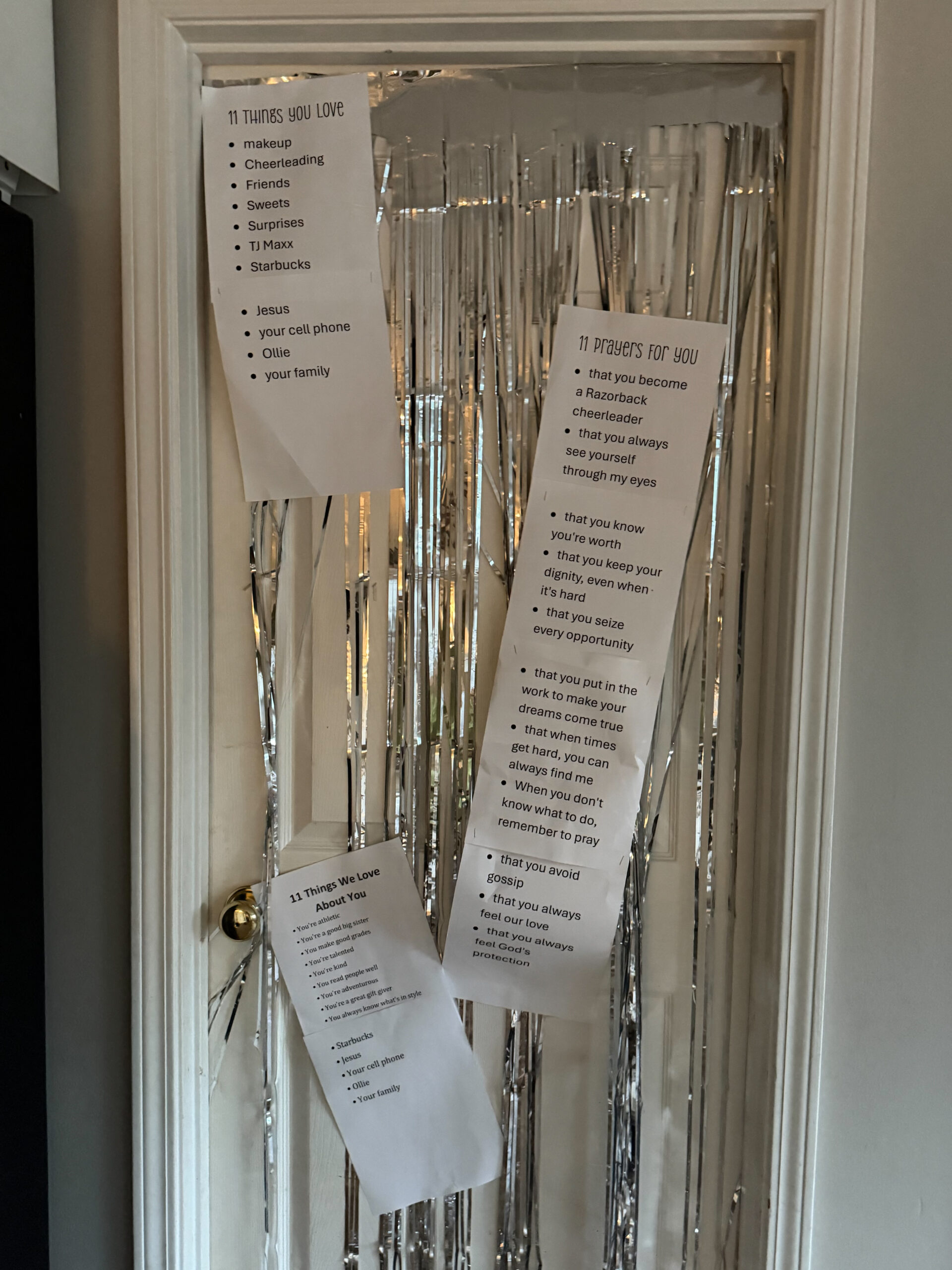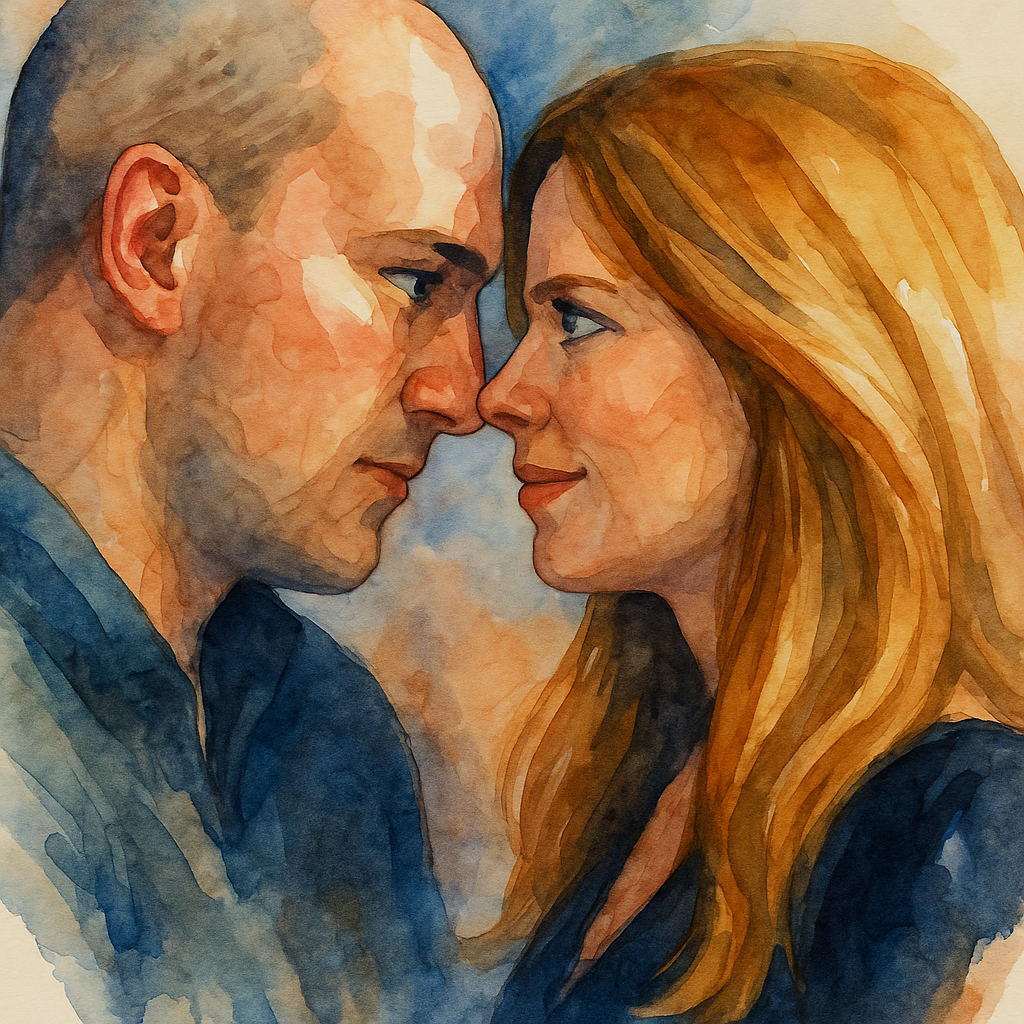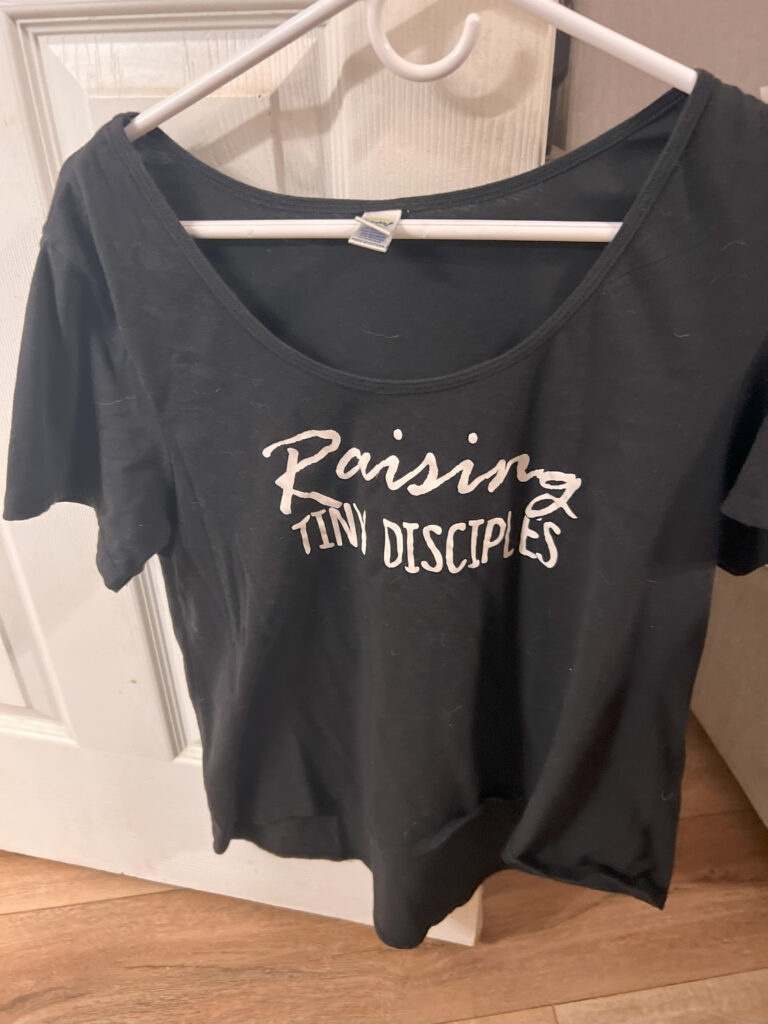Clarity when life is chaotic
Sometimes a thankful heart doesn’t come from the mundane itself, but from noticing it before the world wakes up. These are the small hours where gratitude feels louder than worry, and where the ordinary starts to look extra.
I’m up before the roosters crow. I know that for two reasons: first, we got a rooster over the weekend and he’s silent right now. Second, it’s still pitch dark outside.
This is the space in time where warm coffee and I meet. When I show up late, I get her twin sister — cold coffee. I like warm coffee because that means I also have time to write my morning gratitude reflection.
We celebrated Abby’s eleventh birthday over the weekend. Just a quaint one with our little family.

She was really excited. We got her an iphone, but I wrapped it in a huge box. We totally fooled her.
If you are looking for a tradition to do on your child’s birthday, I started decorating their door in the wee hours of the night before their birthday, so they wake up feeling special. I make three lists, and I keep my lists the same each year: # of prayers for you, # of your favorite things, and # of our favorite things about you. The number of items depends on the number of years they have been born. So since it was Abby’s 11th birthday, she had 11 items under each list.
Here it is. Simple, yet affirming.

It amazes me how small things, like a child’s birthday, can change the entire lens through which you see each day.
I fall down rabbit holes sometimes — a Facebook post about a mom fighting for her life, or a young father who passed away — and suddenly, eleven years doesn’t seem like time stolen. It feels like currency I didn’t earn.
I’m no better than anyone else, so why do I get to wake up today with a warm cup of coffee, healthy kids, and an ordinary list of tasks? I don’t know, but I sat with that for a minute….
The thought evokes a strong sense of both unworthiness and gratitude. Do you ever think about that simple yet deep comfort some of us wake up to every day, like our health? I don’t say that with any kind insult, but more just a relief that I remembered today that time hasn’t been stolen from me; rather, it’s been generously shared with me, and why God is so good, I will never know why.
But for now, I get to enjoy the mundane — because life hasn’t thrown any unforeseen strikes. Yet.





